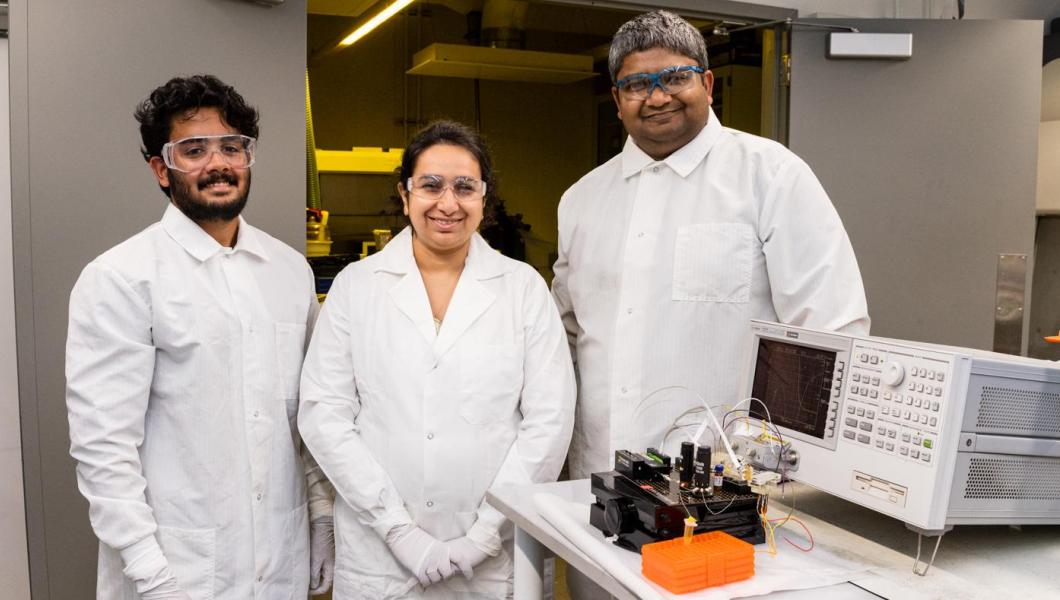NJIT Historian Rosanna Dent Awarded for Exploration of Brazil's Xavante

NJIT Assistant Professor of History Rosanna Dent's ongoing work exploring the history of research in Indigenous A’uwẽ-Xavante communities of Brazil has now earned her the 2020 John C. Burnham Early Career Award at this year’s History of Science Society’s Forum for the History of the Human Science.
As part of the prize, Dent will submit her research essay to Wiley’s Journal of the History of the Behavioral Science (JHBS), titled “Bureaucratic Vulnerability: Possession, Sovereignty, and Relationality in Brazilian Research Regulation.” The essay has been acclaimed for its examination of colonialism in Brazil “as an ongoing structure rather than an event of the past by developing innovative historical methods in working with indigenous Xavante people.”
The prestigious annual prize, named in honor of the noted late historian and JHBS editor John Burnham, is typically awarded to an early-career Ph.D. academic scholar for the best paper intended for publication in JHBS, generally related to historical research in the natural, behavioral and social sciences.
Dent’s accomplishments were highlighted in a citation by the 2020 Burnham Prize Committee's Chair Chin Jou, and committee members Tom Stapleford and Sebastián Gil-Riaño:
“Professor Dent’s work in the academy demonstrates the highest standards and embodies principles of social justice in research, teaching and global community build .... With deep care, nuance and scholarly rigor, Dent grapples with balancing positions both within the Xavante community and within scholarly communities. In doing so, Dent’s work gives courage to other historians of the human sciences to further consider the place of ethnographic practices in historical knowledge making. Dent’s work is a profound yet humble call to attend to how historians might navigate institutional bureaucracies and personal moral codes, as well as what Dent calls ‘systems of relational ethics’ within the communities.”
“It’s a big honor given the other past recipients of the award, who are scholars I really admire,” said Dent. “They’ve written a kind citation for the award, which will serve as a project to live up to. Something nice about getting an award early in your career is that it inspires you to keep doing what you are doing, and hopefully do it better.”
Dent says she began her fieldwork with Xavante communities in 2014, exploring how Indigenous subjects have shaped disciplines of academics that have long studied them, in the case of the Xavante, since the early 1900s. In 2015, she also began collaborating on a Xavante digital archive project, which has so far entailed four separate periods of community-based research and cultural documentation made available to members of Xavante communities.
“What [the essay] emphasizes is that even under colonial structure of the Brazilian state sovereignty, Indigenous participants in research are still creatively trying to exercise sovereignty as they engage with and influence researchers who come to study them from outside of their communities,” said Dent.
“Something different I’ve tried to do in my work is to use ethnographic methods, and part of that work is about building an archive to give to community members in the Xavante territories I study,” Dent added. “So, I’ve studied the outside scientists but have also collaborated with the community members to try and make that scientific production available to them so that they could benefit from all the documentation that has been done by outsiders.”
Dent is currently expanding upon her essay through a book manuscript on the history of human sciences research in Xavante communities in Central Brazil, showing how these interactions have influenced knowledge production, and political and social realities of both subjects over the past half century. She is also at work on publishing a separate collaborative analysis of oral histories of human genetics in Brazil.
“One of the goals [of the book] is to help all kinds of people who work with human subjects to do so in a more justice-oriented way, whether that is in the human sciences, natural sciences and especially in my own field of history,” said Dent. “I want to get people to think about how they do human subjects research in ways that are critical and that really consider what ethical work needs to be done in terms of engaging with people participating with the research.”
Dent received her Ph.D. from the University of Pennsylvania in 2017 and completed a Mellon Postdoctoral Fellowship at McGill University before joining the Federated Department of History at NJIT and Rutgers-Newark. At NJIT, she teaches courses on the history of science, medicine, and technology, with an emphasis on the global South. Her work has been supported by The Mellon Foundation, the American Council of Learned Societies, the Max Planck Center for the History of Science, the Social Science Research Council and Fulbright IIE.

